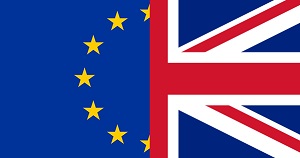One in four Brits (26%) used social networks such as Facebook and Twitter to share and receive information about the EU referendum in the run up to polling day according to a national survey. And 6% said the information they found through social media played a role in changing their minds about which side would get their vote.
24% of those questioned said social media helped give them a better understanding of the issues connected with the referendum according to the UK survey of 1000 adults by technology PR agency, CloudNine PR.
While 6% admitted the information they found via social media played a role in helping them decide to switch sides, a bigger number – 24% – said it served to reinforce their decision about the way they had already planned to cast their vote. 20% admitted all the information they found on social media just confused them more.
“Research suggests that half of all web users use social media to find news each week, with increasing numbers saying it’s their main news source,” said Uday Radia, director at CloudNine PR. “And our survey highlights how people may be taking things to the next level by actively exchanging and discussing news and articles they find on social media. It’s a powerful way of debating issues such as the referendum and getting people engaged.
“And with the two sides in the referendum so closely placed right to up to polling day, who knows – perhaps social media might have made that little bit of difference in deciding the outcome.”
Despite the rise of social media, the survey found that 35% of people still prefer to use email to share information on issues such as the referendum, believing email to be more private.
6% of those were asked said they prefer to share information on messaging apps such as WhatsApp and SnapChat again because of greater perceived privacy.
“The findings about messaging apps back up the suggestion that there’s a trend in which some people, especially younger people, are now turning away from the traditional social networks in favour of these apps – seemingly because they offer more control and privacy over their day to day communications,” Radia said.

